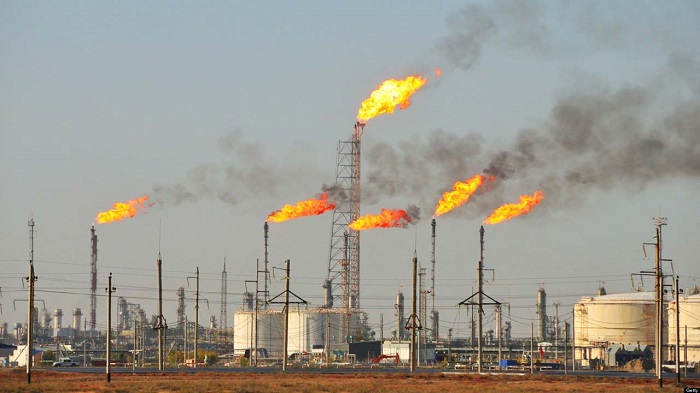The Petroleum Industry Bill (PIB), the contentious piece of legislation aimed at reforming Nigeria’s oil and gas sector, has been described as failing to address community, economic and environmental concerns.

A group of four not-for-profit organisations – Corporate Accountability and Public Participation Africa (CAPPA), We the People, Health of Mother Earth Foundation (HOMEF) and Environmental Rights Action/Friends of the Earth Nigeria (FoEN) – in Lagos on Wednesday, July 7, 2021 at a media session rejected the PIB because, according to them, it fails to address key issues.
For instance, they said that, for failing to place any definite gas flare-out date, the PIB does not appear to consider Nigeria’s climate change pledges as contained in the nation’s Nationally Determined Contributions (NDCs).
One of Nigeria’s NDC targets is to end gas flaring by 2030. But the PIB, according to the campaigners, “presents the impression that the practice will continue indefinitely to the detriment of host communities who continue to bear the dangerous consequences”.
Ken Henshaw of We the People, speaking on behalf of the group, said: “The PIB creates a series of exemptions which basically ensures that the same gas flare regime continues literarily unchecked. It identifies instances where gas flaring may be permitted.
“Also, the Bill proposes the utilisation of gas flare fines in more income yielding investments without any special consideration for the communities who suffer the impact of gas flaring. Evidently, the PIB considers gas flaring a waste of economic resources which should be paid for, and not as an abuse which is impacting the climate, the health and livelihoods of communities.
“It is important to note that gas flaring has been illegal in Nigeria since 1984. In 2005, a Federal High Court in Nigeria reaffirmed the illegality of the practice and held that gas flaring amounted to a violation of the constitutional right to life and dignity of the people. Since the 1970s, the Nigerian government has put in place several deadlines to end gas flaring. The last flare-out date was 2020 which was again shifted in favour of a 2030 deadline. As routine practice, deadlines to end gas flaring are shifted as the targets approach.”
The group recommended the introduction of a clause that affirms the outlawing of gas flaring and requires that offenders pay the full economic cost of the flared gas as well as the related health and environmental costs.
“It should ensure that gas flare fines are invested in the host communities funds and an Environmental Remediation Fund. It is recommended that the discretionary powers given to the Commission to determine how much is paid as penalty for gas flaring be removed. The regulations should clearly peg the fines for violation as stated above,” said Henshaw, adding:
“It is also recommended that the PIB places a definite date to end gas flaring, and provide a framework to review each company milestone towards achieving the flare out target; as well as establish definite ‘non fines’ sanctions for violations of milestones.
“It is equally recommended that grounds for exemption on gas flaring should be made more explicit, including for such reasons as ‘strategic operational reasons’. Timeframes for such exemptions should also be expressly stated.”
The activists also frowned at the fact that the PIB expresses no intention for moving Nigerian away from dependence on fossils.
“At a time when the world is moving away from crude oil, the PIB is planning to make more investments in that regard. This indicates that the government is not keeping in tandem with global trends. The provisions and proposals in the PIB are also indicative of the fact that the Nigerian government is unperturbed by concerns of global warming and climate change,” said Henshaw.
He added: “Ironically, Nigeria is emerging as one of the most impacted countries globally by the effects of climate change. The shrunken Lake Chad, increased desertification and the regular floods around the Atlantic coast are ready evidences. That the PIB pays no heed to issues of climate change, despite Nigeria’s NDCs, and aims to plunge the country further into fossil extraction is a major source of concern.
“The PIB presents a rare opportunity to reform the management of the oil and gas sector in Nigeria. But it also presents an opportunity to transform the footprints of oil extraction in host communities, to invest in clean energy, ween the country from fossil dependence and combat years of pollution and neglect.
“The PIB also ignores the extreme harm inflicted on the Niger Delta and says nothing about a region-wide environmental remediation effort which ought to start now. The Bill passed by both chambers of the National Assembly has done none of the above.”
